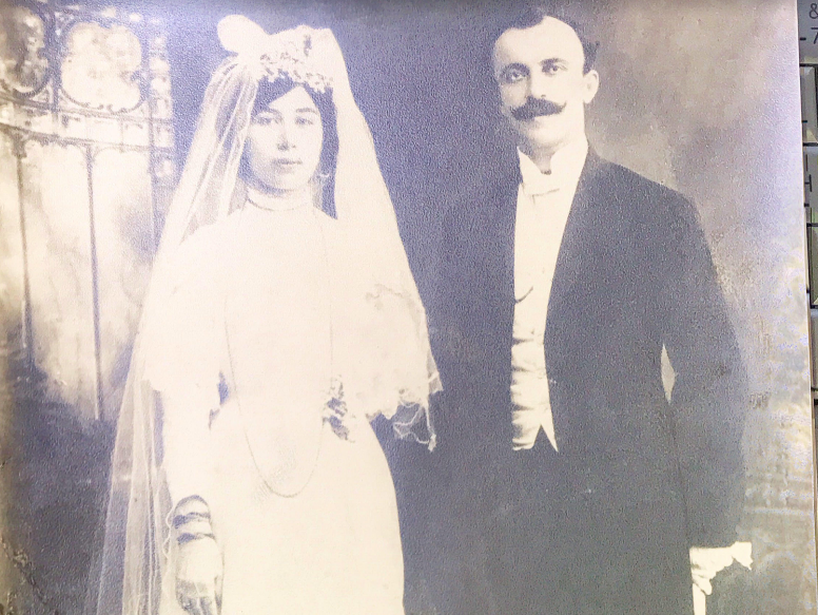|
The Breadcrumbs widget will appear here on the published site.
Campus By The SeaBy Melina Bee Growing up, I never understood my father’s pride in American University of Beirut (AUB), which is his alma mater as well that of his father and grandfather. Despite my months-long visits to Beirut every summer for the first two decades of my life, I had never actually set foot on the campus until this past January. The moment I laid eyes on the AUB campus eight weeks ago, I immediately recognized it as easily one of the most gorgeous universities in the world and felt awe and pride surge through me, not only for the collegiate beauty but also what it had meant for my family to have been part of this institution. AUB’s campus is an exemplar of Levantine splendor, beautiful in a uniquely eastern Mediterranean way.
Even though I entered through the smallest and least impressive gate on campus, I was floored by the 19th century sandstone buildings peeking out from behind the variety of lush trees from around the world, each labeled with its species. My jaw dropped by the time I reached the side of campus which overlooks the Mediterranean sea. “My father could walk to the beach between class!” I realized as I proceeded to do just that. Not limiting itself to its early architectural styles, AUB had also incorporated several cutting edge modern buildings such as the business school. Founded in 1866 as Syrian Protestant College, the school adopted its current name in 1920. Its mascot, the phoenix, is an ideal representation of Beirut, a city which time and time again has risen from the ashes of conquest and war. The main gate is along Bliss Street which I assumed until writing this essay referenced the utter sense of joy students must feel upon being admitted. In reality, the street takes its name from Dr. Daniel Bliss, the school’s first president. My great-grandfather, an ethnically Armenian surgeon, was invited to teach here in 1904. Along with his new bride, he left his home in what was then the eastern part of the Ottoman Empire to settle in cosmopolitan Beirut, predating the waves of other Armenians who arrived in Lebanon under darker circumstances in 1915 as part of systemic deportation/death marches. I can only imagine how he perceived his new home and workplace, especially in light of eventually realizing he could never go back to his birthplace and ancestral lands. His own son, my grandfather, was born in Beirut and also attended AUB. By that point, though still a proud ethnic minority called Beirutsi, my paternal line had assimilated into Lebanese culture as respected professionals. It followed naturally that my own father would also attend AUB. As a student, he’d walk twenty minutes every day from his neighborhood, the now trendy Gemmayzeh, to campus and back. Having walked along the same route myself now and seen the vibrant splendor of the campus, I’m struck by his own loss of home. One of the advantages of attending AUB is guaranteed admission to graduate schools in the United States which is what brought my dad to the University of Virginia in the early 1970s. He had always intended to return to Beirut with a prestigious American degree but that plan was disrupted by the outbreak of the Lebanese civil war, which lasted from 1975 until 1990. Instead, he settled in the U.S. and brought over my mom, also a Beirutsi. I work in higher ed now in the Virginia city where I’ve spent most of my life and hear about how college can open doors to the world. What I hear less about is how institutions of higher learning can provide opportunity when going back “home” is no longer an option. And in closing, a haiku for you: campus by the sea, AUB, alma mater of paternal line
0 Comments
CommentsYour comment will be posted after it is approved.
Leave a Reply. |
AuthorWrite something about yourself. No need to be fancy, just an overview. Archives
July 2024
Categories
All
|



 RSS Feed
RSS Feed






